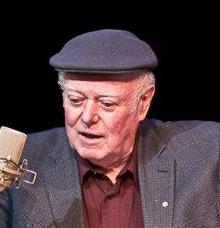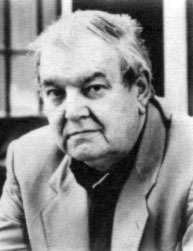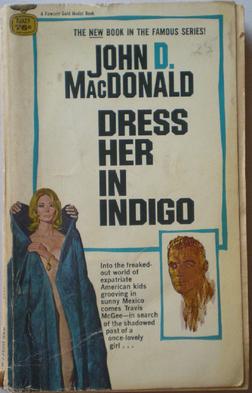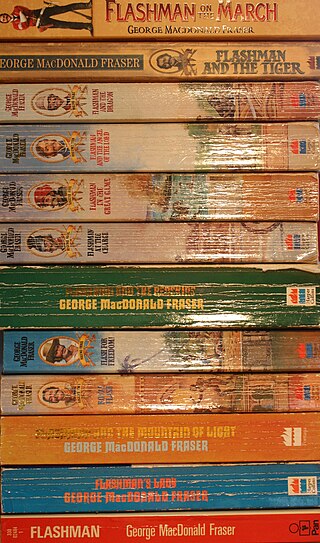 | |
| Author | George MacDonald |
|---|---|
| Country | United Kingdom |
| Language | English |
| Publisher | Hurst and Blackett |
Publication date | 1863 |
David Elginbrod is an 1863 novel by George MacDonald. It is MacDonald's first realistic novel.
 | |
| Author | George MacDonald |
|---|---|
| Country | United Kingdom |
| Language | English |
| Publisher | Hurst and Blackett |
Publication date | 1863 |
David Elginbrod is an 1863 novel by George MacDonald. It is MacDonald's first realistic novel.
A novel of Scottish country life, in the dialect of Aberdeen.
A story of humble life, centering in two saintly personalities, a dignified and pious Scottish peasant, and his daughter. A vein of mysticism runs through the story, and mesmerism and electro-biology are introduced.

The Clan McDuck is a fictional Scottish clan of cartoon ducks from which Disney character Scrooge McDuck is descended. Within the Donald Duck universe, the clan is related to the American Duck family through the marriage of Hortense McDuck and Quackmore Duck, Donald and Della Duck's parents, giving both of them partial Scottish ancestry.

Alistair MacLeod, was a Canadian novelist, short story writer and academic. His powerful and moving stories vividly evoke the beauty of Cape Breton Island's rugged landscape and the resilient character of many of its inhabitants, the descendants of Scottish immigrants, who are haunted by ancestral memories and who struggle to reconcile the past and the present. MacLeod has been praised for his verbal precision, his lyric intensity and his use of simple, direct language that seems rooted in an oral tradition.

Flora MacDonald 1722 to 5 March 1790, is best known for helping Charles Edward Stuart evade government troops after the Battle of Culloden in April 1746. Her family had generally backed the government during the 1745 Rising, and MacDonald later claimed to have assisted Charles out of sympathy for his situation.

George MacDonald was a Scottish author, poet and Christian Congregational minister. He became a pioneering figure in the field of modern fantasy literature and the mentor of fellow-writer Lewis Carroll. In addition to his fairy tales, MacDonald wrote several works of Christian theology, including several collections of sermons.
John Dann MacDonald was an American writer of novels and short stories. He is known for his thrillers.

George MacDonald Fraser was a Scottish author and screenwriter. He is best known for a series of works that featured the character Flashman. Over the course of his career he wrote eleven novels and one short-story collection in the Flashman series of novels, as well as non-fiction, short stories, novels and screenplays—including those for the James Bond film Octopussy and an adaptation of his own novel Royal Flash.

Robert Roy MacGregor was a Scottish outlaw, who later became a folk hero.

David Lindsay was a Scottish author best remembered for the philosophical science fiction novel A Voyage to Arcturus (1920).

Phantastes: A Faerie Romance for Men and Women is a fantasy novel by Scottish writer George MacDonald published in London in 1858.

Kidnapped is a historical fiction adventure novel by Scottish author Robert Louis Stevenson, written as a boys' novel and first published in the magazine Young Folks from May to July 1886. The novel has attracted the praise and admiration of writers as diverse as Henry James, Jorge Luis Borges, and Hilary Mantel. A sequel, Catriona, was published in 1893.

Elements of the supernatural and the fantastic were an element of literature from its beginning. The modern genre is distinguished from tales and folklore which contain fantastic elements, first by the acknowledged fictitious nature of the work, and second by the naming of an author. Works in which the marvels were not necessarily believed, or only half-believed, such as the European romances of chivalry and the tales of the Arabian Nights, slowly evolved into works with such traits. Authors like George MacDonald (1824–1905) created the first explicitly fantastic works.

Alec Forbes of Howglen is a novel by George MacDonald, first published in 1865, and is primarily concerned with Scottish country life.

Royal Flash is a 1970 novel by George MacDonald Fraser. It is the second of the Flashman novels. It was made into the film Royal Flash in 1975 and remains the only Flashman novel to be filmed.

Daredevil is the title of a mystery novel by Leslie Charteris which was first published by Ward Lock in 1929. This was Charteris' fourth full-length novel, and is one of the few full-length books in his canon that does not feature the character of Simon Templar, alias "The Saint". However, the book does have a connection to the Saint series.

Breakheart Pass is a novel by Scottish author Alistair MacLean (1922–1987), first published in 1974. It was a departure for MacLean in that, despite the thriller novel plot, the setting is essentially that of a western novel, set in the Sierra Nevada of the American West in the late 19th century. Fans of MacLean will recognize the usual plots twists, thrill-packed finale, and trademark sardonic dialogue. For American audiences, MacLean was less successful capturing an authentic tone of the western frontier, and the 1975 movie version starring Charles Bronson, Richard Crenna, Ben Johnson, and Jill Ireland, proved to be more popular with the public than the novel.

Dress Her in Indigo (1969) is the eleventh novel in the Travis McGee series by John D. MacDonald.
Scottish Gaelic literature refers to literary works composed in the Scottish Gaelic language, which is, like Irish and Manx, a member of the Goidelic branch of Celtic languages. Gaelic literature was also composed in Gàidhealtachd communities throughout the global Scottish diaspora where the language has been and is still spoken.

Kidnapped is a 1917 American silent adventure film directed by Alan Crosland for Edison Studios. It was based on the 1886 novel Kidnapped by Robert Louis Stevenson. The film only included selected parts of the story, and reinforced the then-developing romanticisation of the Scottish Highlands.

The Flashman Papers is a series of novels and short stories written by George MacDonald Fraser, the first of which was published in 1969. The books centre on the exploits of the fictional protagonist Harry Flashman. He is a cowardly British soldier, rake and cad who is placed in a series of real historical incidents between 1839 and 1894. While the incidents and much of the detail in the novels have a factual background, Flashman's actions in the stories are either fictional, or Fraser uses the actions of unidentified individuals and assigns them to Flashman. Flashman is a character in the 1857 novel by Thomas Hughes, Tom Brown's School Days; Hughes' version of the character is a bully at Rugby School who is expelled for drunkenness. The character was then developed by Fraser, and appeared in the 1969 novel Flashman. Fraser went on to write a total of eleven novels and one collection of short stories featuring the character.
Chris Dolan is a Scottish novelist, poet, and playwright. He is married to Moira Dolan and they currently live in Glasgow with their children. He is a lecturer in English Literature at Glasgow Caledonian University and is Programme Leader of the master's degree programme in Television Screenwriting there.